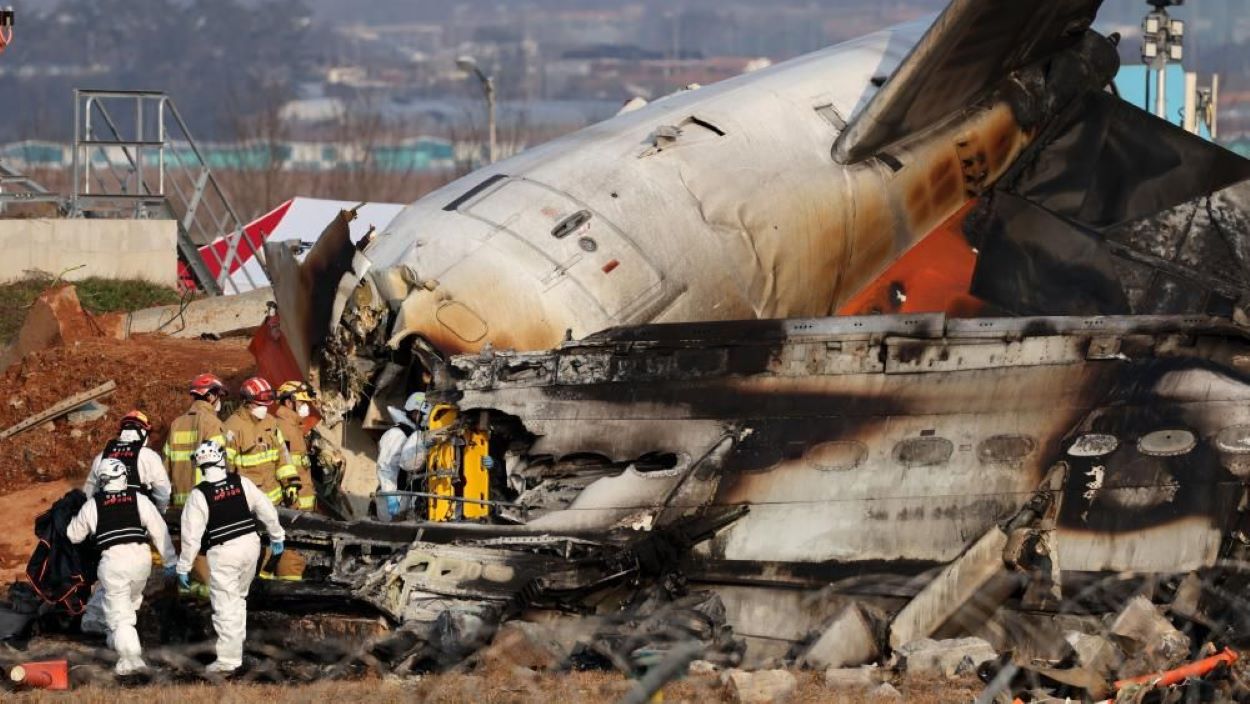South Korea’s transport ministry reported on Saturday that the black boxes from the crashed Jeju Air flight, which resulted in 179 fatalities, ceased recording four minutes before the crash.
The Boeing 737-800, en route from Thailand to Muan, South Korea, on December 29, tragically ended its journey in a fiery crash after hitting a concrete barrier at Muan airport.
This incident marks the most severe aviation disaster in South Korea’s history. According to the transport ministry, the flight data recorder (FDR) and the cockpit voice recorder (CVR) failed to record critical data during the final minutes before the aircraft collided with the localizer. This runway barrier assists with landing but was also a factor in the crash’s severity.
Authorities deemed the flight data recorder too damaged to extract data and sent it to the US National Transportation Safety Board laboratory for further analysis. This setback leaves key questions about the flight’s final moments unanswered, prompting ongoing investigations into the cause of the data loss.
The flight data and cockpit voice recorders on the Jeju Air jet that crashed on December 29 stopped recording about four minutes before the airliner hit a concrete structure at South Korea's Muan airport, the transport ministry said on Saturday: Reuters pic.twitter.com/R2IAzMf11I
— Global Times (@globaltimesnews) January 11, 2025Read: Jeju Air Disaster: Black Box Heads to U.S. for Crucial Analysis
South Korean and US investigators continue to explore potential causes for the crash, including a bird strike, malfunctioning landing gear, and the runway barrier. Notably, the pilot had reported a bird strike during an initial landing attempt before crashing on the second try when the landing gear failed to deploy.
Lead investigator Lee Seung-yeol confirmed finding feathers in one of the recovered engines, although he noted that a bird strike alone does not typically lead to immediate engine failure.
In response to the tragedy, authorities have conducted raids at various locations, including Muan Airport, a regional aviation office, and Jeju Air’s headquarters in Seoul. As investigations continue, the CEO of Jeju Air has been prohibited from leaving the country.
Amidst these developments, Transport Minister Park Sang-woo offered his resignation, citing a “heavy sense of responsibility” for the aviation safety oversight. Meanwhile, rival political parties have established a joint task force to investigate the crash further.






